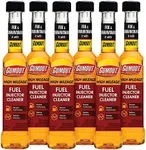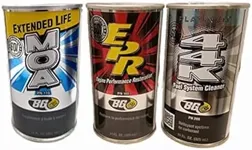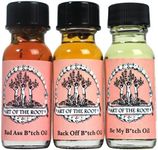Buying Guide for the Best Engine Treatments
When it comes to picking the right engine treatment for your vehicle, it's important to understand what these products do and how they can benefit your engine. Engine treatments are additives that you mix with your engine oil or fuel to enhance the performance and longevity of your engine. They can help reduce friction, clean internal components, and protect against wear and tear. To choose the best engine treatment for your needs, you should consider several key specifications and understand how they relate to your vehicle and driving habits.Type of Engine TreatmentEngine treatments come in various types, such as oil additives, fuel additives, and complete system cleaners. Oil additives are mixed with your engine oil to improve lubrication and reduce wear. Fuel additives are added to your fuel tank to clean the fuel system and improve combustion. Complete system cleaners are designed to clean both the oil and fuel systems. The type of engine treatment you choose should depend on what aspect of your engine's performance you want to enhance. If you're looking to improve lubrication and reduce engine wear, an oil additive might be the best choice. If you want to clean your fuel injectors and improve fuel efficiency, a fuel additive would be more appropriate.
Compatibility with Engine TypeNot all engine treatments are suitable for all types of engines. Some treatments are specifically formulated for gasoline engines, while others are designed for diesel engines. Additionally, there are treatments that are compatible with both types. It's crucial to choose a treatment that matches your engine type to ensure optimal performance and avoid potential damage. Check your vehicle's manual or consult with a professional to determine the right type of treatment for your engine.
Purpose of TreatmentEngine treatments can serve various purposes, such as reducing friction, cleaning deposits, preventing corrosion, and improving fuel efficiency. Understanding the specific purpose of the treatment will help you choose the right product for your needs. For example, if your engine is experiencing knocking or pinging, you might need a treatment that focuses on cleaning carbon deposits. If you're looking to extend the life of your engine, a treatment that reduces friction and wear would be more suitable. Identify the primary issue or goal you have for your engine, and select a treatment that addresses that need.
Frequency of UseDifferent engine treatments have varying recommended frequencies of use. Some treatments are designed for one-time use, while others should be used regularly, such as with every oil change or fuel fill-up. Consider how often you're willing to apply the treatment and choose a product that fits your maintenance routine. Regular treatments can provide ongoing benefits, but they also require more commitment. One-time treatments are convenient but may not offer long-term improvements. Decide what level of maintenance you're comfortable with and select a treatment accordingly.
Brand Reputation and ReviewsThe reputation of the brand and reviews from other users can provide valuable insights into the effectiveness of an engine treatment. Established brands with a history of producing reliable products are often a safer choice. Reading reviews can help you understand the experiences of other users and whether the treatment delivered the promised results. Look for products with positive feedback and a good track record to increase the likelihood of choosing an effective treatment. However, keep in mind that individual results can vary, so consider multiple sources of information before making a decision.





















